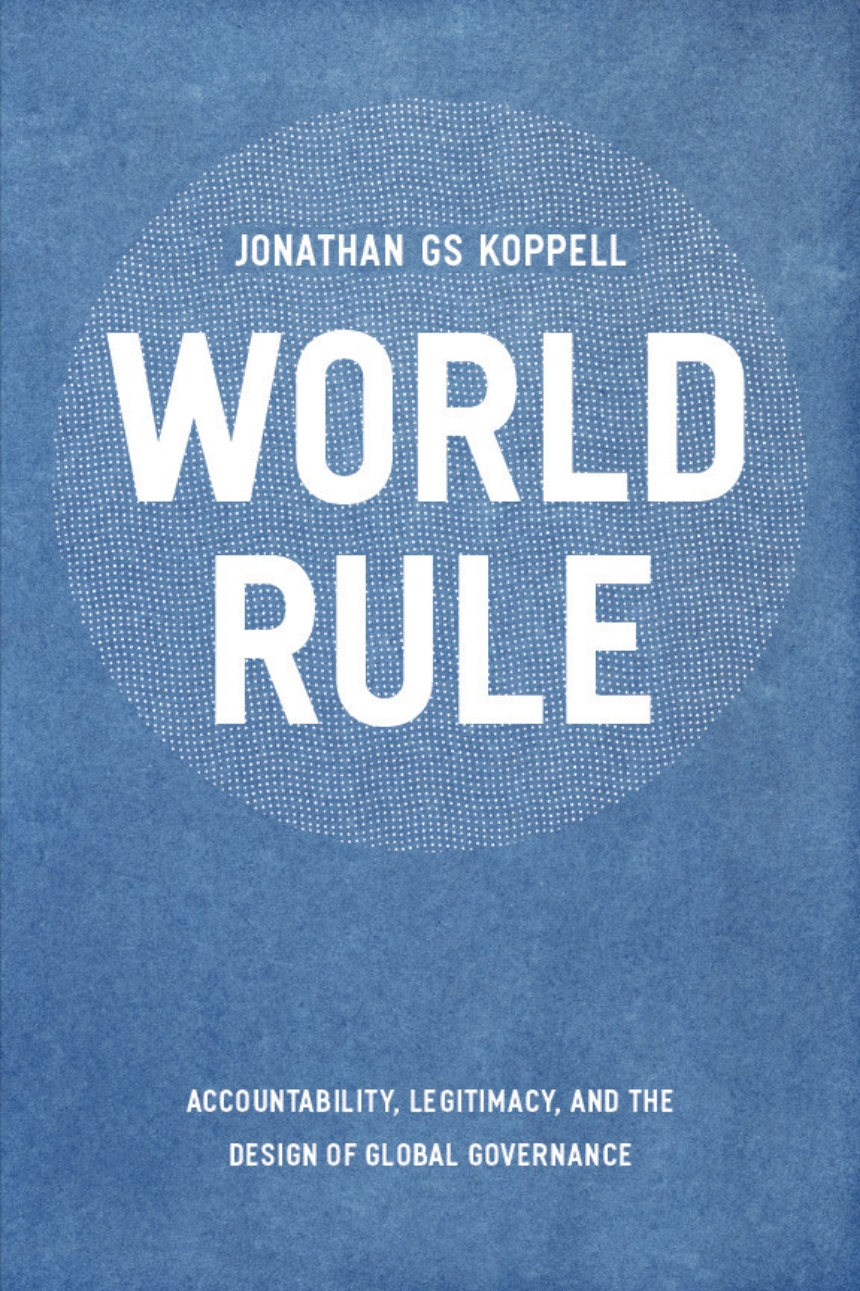World Rule
Accountability, Legitimacy, and the Design of Global Governance
World Rule
Accountability, Legitimacy, and the Design of Global Governance
Dilemmas from climate change to financial meltdowns make it clear that global interconnectedness is the norm in the twenty-first century. As a result, global governance organizations (GGOs)—from the World Trade Organization to the Forest Stewardship Council—have taken on prominent roles in the management of international affairs. These GGOs create and promulgate rules to address a host of pressing problems. But as World Rule reveals, they struggle to meet two challenges: building authority despite limited ability to impose sanctions and maintaining legitimacy while satisfying the demands of key constituencies whose support is essential to a global rulemaking regime.
Through a novel empirical study of twenty-five GGOs, Jonathan GS Koppell provides a clearer picture of the compromises within and the competition among these influential institutions by focusing attention on their organizational design. Analyzing four aspects of GGO organization in depth—representation and administration, the rulemaking process, adherence and enforcement, and interest group participation—Koppell describes variation systemically, identifies patterns, and offers explanations that link GGO design to the fundamental challenge of accountability in global governance.
376 pages | 3 figures, 46 tables | 6 x 9 | © 2010
Political Science: Diplomacy, Foreign Policy, and International Relations
Reviews
Table of Contents
List of Abbreviations
The Emerging Reality of Global Governance
What the Design of Global Governance Organizations Tells Us
The Logic of Global Governance
Plan of the Book
CHAPTER 2. Accountability and Legitimacy-Authority Tension in Global Governance
Five Concepts of Accountability
Disentangling Legitimacy and Authority
Complementary and Conflicting Demands
What Makes GGOs Different?
CHAPTER 3. Introduction to the GGO Sample and Their Core Characteristics
Sorting Out the Universe of Organizations
GGOs Included in This Study
Core Characteristics of GGOs
CHAPTER 4. Structure and Administration of GGOs
Six Variations in GGO Structure
Implications
CHAPTER 5. Rulemaking in Global Governance Organizations
Variation in GGO Rulemaking
Patterns of Global Rulemaking
Implications
CHAPTER 6. The Riddle of Global Adherence
Variations in Global Adherence Regime
Patterns of GGO Adherence
Implications of Adherence Approach
CHAPTER 7. Interest Groups and Global Governance
Transnational Interest Group Variation
Patterns of Interest Group Variation
GGO Authority and the Satisfaction of Interest Groups
CHAPTER 8. Cooperation and Competition in Global Governance
Global Governance as a Competitive Marketplace
Conclusion
CHAPTER 9. Conclusion: Models of Global Governance and Accountability
Putting It All Together: Three Models of Global Governance
APPENDIX A. List of Interview Subjects
References
Index
Awards
Public/Nonprofit Division of the Academy of Management: Best Public/Nonprofit Book Award
Won
International Political Science Association's Research Committee on the Structure and Organization of Government (SOG): Charles A. Levine Memorial Book Prize
Won
